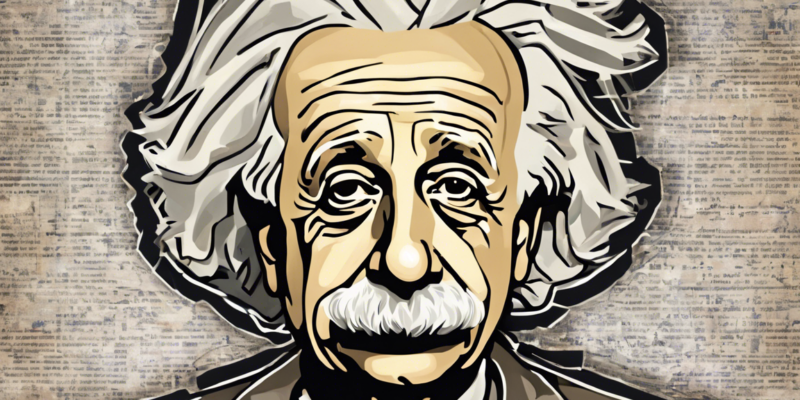Albert Einstein, one of the greatest scientists of all time, left behind a legacy that continues to inspire and influence people around the world. While he is best known for his groundbreaking work in theoretical physics, including the theory of relativity and the famous equation E=mc², Einstein’s impact goes beyond his scientific contributions. He also embodied the spirit of the global citizen scientist, advocating for peace, social justice, and a better world for all. In this article, we will explore Einstein’s legacy as a global citizen scientist and the lessons we can learn from his life and work.
Einstein’s Early Life and Scientific Achievements
Albert Einstein was born in 1879 in Ulm, Germany. From a young age, he showed a keen interest in mathematics and science. In 1905, Einstein published four groundbreaking papers that would revolutionize the field of physics. These papers laid the foundation for modern physics, including the special theory of relativity, the photoelectric effect, and the famous equation E=mc².
The Global Impact of Einstein’s Work
Einstein’s theories have had a profound impact on our understanding of the universe. The theory of relativity transformed our understanding of space, time, and gravity, while the equation E=mc² revealed the relationship between energy and mass. Einstein’s work also paved the way for the development of technologies such as nuclear power and GPS.
Einstein as a Global Citizen
While Einstein is best known for his scientific achievements, he was also a passionate advocate for social causes. He spoke out against war, racism, and injustice, and used his platform to promote peace and human rights. Einstein believed in the power of science to create a better world and saw himself as a citizen of the world, rather than a citizen of any one country.
Lessons from Einstein’s Legacy
1. Embrace Curiosity and Creativity
Einstein’s groundbreaking discoveries were the result of his curiosity and willingness to think outside the box. He encouraged others to embrace their curiosity and approach problems with an open mind.
2. Stand Up for What You Believe In
Einstein was not afraid to speak out against injustice, even when it was unpopular. He believed in using his voice and influence to advocate for a more just and peaceful world.
3. Use Science for Good
Einstein believed that science should be used for the betterment of humanity. He saw the potential for science to solve the world’s most pressing problems and improve the lives of people everywhere.
Frequently Asked Questions (FAQs)
1. What was Einstein’s most famous equation?
Einstein’s most famous equation is E=mc², which describes the relationship between energy (E), mass (m), and the speed of light (c).
2. What impact did Einstein’s theories of relativity have on the field of physics?
Einstein’s theories of relativity revolutionized our understanding of space, time, and gravity. They provided a new framework for understanding the universe.
3. How did Einstein use his platform to advocate for social causes?
Einstein was a vocal critic of war, racism, and injustice. He used his fame and influence to promote peace, human rights, and social justice.
4. What can we learn from Einstein’s legacy as a global citizen scientist?
We can learn the importance of embracing curiosity, standing up for what we believe in, and using science for the betterment of humanity.
5. How can we honor Einstein’s legacy in our own lives?
We can honor Einstein’s legacy by promoting peace, social justice, and scientific progress in our own communities. By following his example, we can work towards a better world for all.



Comments